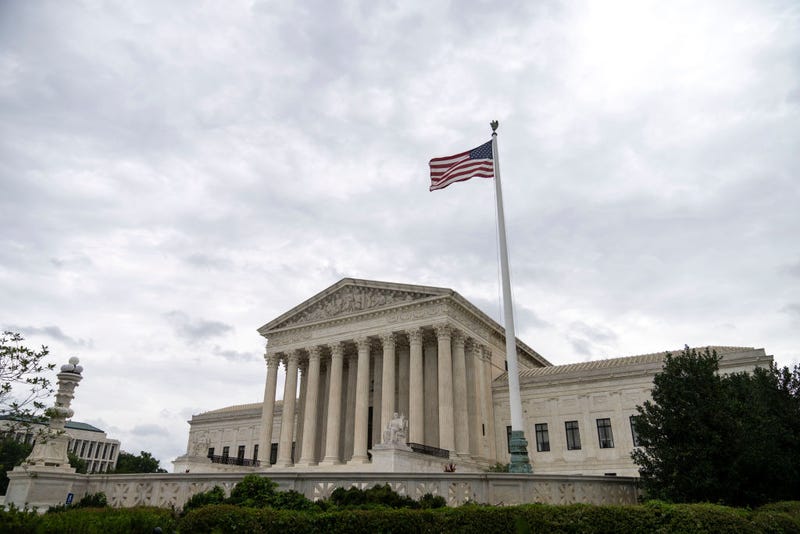

LOS ANGELES (AUDACY) — The U.S. Supreme Court decided Wednesday not to block Texas’ ban on abortions after six weeks of pregnancy, allowing the most restrictive law nationwide on the procedure to remain in effect.
While the court said it is not ruling on the law’s constitutionality, in a 5-to-4 vote, the justices denied petitioners’ emergency request to put the law on hold while legal battles continued.
Opponents say the law strips 85% of Texas patients considering abortion of their ability to seek care in their home state and could force most clinics to shutter their doors. Healthcare workers began turning patients away Wednesday after the law took effect.
The high court’s order noted the petitioners had “raised serious questions regarding the constitutionality of the Texas law,” but doubted they would be successful in defending arguments before the court. Because the court did not rule on the state law’s constitutional merit, other legal challenges may still proceed in lower courts.
“In reaching this conclusion,” the unsigned opinion said, “we stress that we do not purport to resolve definitively any jurisdictional or substantive claim in the applicants’ lawsuit.
“The court’s order is stunning,” Justice Sonia Sotomayor wrote in her dissent, joined by Justices Stephen Breyer and Elena Kagan.
“Presented with an application to enjoin a flagrantly unconstitutional law engineered to prohibit women from exercising their constitutional rights and evade judicial scrutiny,” Sotomayor continued, “a majority of justices have opted to bury their heads in the sand.”
Chief Justice John Roberts, one of the court’s six conservative members, sided with liberal justices who said they would have blocked the law.
“The legislature has imposed a prohibition on abortions after roughly six weeks, and then essentially delegated enforcement of that prohibition to the populace at large,” Roberts wrote in a separate dissent. “The desired consequence appears to be to insulate the state from responsibility.”
Abortion rights advocates say nearly 90% of women obtain abortions after six weeks of pregnancy. However, many do not know they are pregnant before that benchmark.
Texas Senate Bill 8 (S.B. 8) allows private citizens unaffiliated with the government to sue anyone who performs an abortion or helps someone obtain one after six weeks. It essentially permits any antiabortion activist or scorned lover to sue and incentivizes legal action by offering potential plaintiffs a $10,000 reward. The law also prohibits cases from being transferred between jurisdictions.
Critics say Black people and other people of color who already face limited access to healthcare will be disproportionately impacted and suffer a more pressing threat of maternal mortality.
“The court should not be so content to ignore its constitutional obligations to protect not only the rights of women, but also the sanctity of its precedents and of the rule of law,” said Justice Sotomayor.

